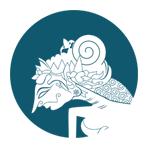How Do I Learn You? Towards Designing an Approach in Unlearning Negative Habits
 Country:
Country:
(1) Philippine Normal University, Philippines
(2) Elizabeth Seton School, Philippines
How Do I Unlearn You? Towards Designing an Approach in Unlearning Negative Habits. Objectives: The study intends to explore and understand the unlearning process, as grounded from the experiences of teachers and students of Edukasyon sa Pagpapakatao (Values Education in the Philippines) towards developing a new approach in teaching the aforementioned subject area. Methods: Interviews were conducted to 33 respondents from a private Catholic school, and transcripts were analyzed through the techniques of thematic analysis and grounded theory. Findings: The adolescents’ negative habits, as well as teachers’ facilitation practices generated substantial themes such as: (1) need for a strong sense of self; (2) difficulty of unlearning due to various “blocks”; (3) instruments to unlearn; and (4) role of teachers as empathic individuals. These codes then led to the final product of the study as E.L.S.A.’s approach to unlearn (Empowering the Self, Letting Go, Starting a New Life, and Action), which may be utilized as schools’ pedagogical framework in producing classroom-based materials in facilitating values formation. Conclusion: The idea of unlearning is not an experimental process or behavioral modification. It only explored the concept and process of unlearning, but did not necessarily aim to make unlearning take place on the psyche of the students.
Keywords: Unlearning negative habits, edukasyon sa pagpapakatao (values education), teaching approaches, adolescence, thematic analysis.
Cuban & Spiliopoulos (2010). The grounded theory method of analysis in home/work study. Retrieved from: http://www.lancaster.ac.uk/fass/projects/homework/Docs/Strand%202-Grounded%20theory%20Data%20Analysis.pdf
Department of Education – Philippines (2013). K-12 Curriculum Guide for EdukasyonsaPagpapakatao Grades 1-10
Fleming, J. S. (2004). Erikson’s Psychosocial Developmental Stages. Retrieved from http://swppr.org/textbook/ch%209%20erikson.pdf
Freiberg, H.J. & Foster, D. (1979). Who should facilitate values education. Journal of Teacher Education, 30(3), 37-40.
Guetterman, Timothy C. (2015). Descriptions of Sampling Practices Within Five Approaches to Qualitative Research in Education and the Health Sciences [48 paragraphs]. Forum Qualitative Sozialforschung / Forum: Qualitative Social Research, 16(2), Art. 25, Retrieved from: http://nbn-resolving.de/urn:nbn:de:0114-fqs1502256.
Hadley, Debbie. (2018). The Firefly Life Cycle. Dotdash Publishing – ThoughtCo. Retrieved from https://www.thoughtco.com/life-cycle-fireflies-lightning-bugs-1968137
Hislop, D., Bosley, S., Coombs, C. R., & Holland, J. (2014). The process of individual unlearning: a neglected topic in an underresearched field. Journal of Management Learning, 45(5), 540-560.
Howells, J. & Scholderer, J. (2016). Forget unlearning? How an empirically unwarranted concept from psychology was imported to flourish in management and organization studies. Journal of Management Learning, 47(4), 443-463.
Jensen E. (2012). Notes on data analysis following grounded theory approach. Retrieved from http://www2.warwick.ac.uk/fac/cross_fac/esrcdtc/coretrainingmodules/ird/psrmoduleoutline/notes_on_data_analysis_following_grounded_theory_approach.pdf
Kohlberg, L. (1971). Stages of moral development. Retrieved from http://info.psu.edu.sa/psu/maths/Stages%20of%20Moral%20Development%20According%20to%20Kohlberg.pdf
Mack, N., Woodsong, C., MacQueen, K.M., Guest, G., Namey, E. (2005). Qualitative research methods: a data collector’s field guide. North Carolina, USA: Family Health International. Retrieved from: https://www.fhi360.org/sites/default/files/media/documents/Qualitative%20Research%20Methods%20-%20A%20Data%20Collector’s%20Field%20Guide.pdf
McKeown, I. (2012). Teaching old dogs new tricks: why unlearning matters in SMEs. Journal of Entrepreneurship and Innovation, 13(1), 25-34.
Savage, T. & Ziemke, T. (2000). Learning and unlearning mechanisms in animals. Journal of Adaptive Behavior, 8(2), 97-128.
Serbo, S. & Ancho, I. Authentic Learning in Teaching Economics. Journal of Research, Policy, & Practice of Teachers & Teacher Education, 9(1), 1–11.
Semetsky, I. & Lovat, T. (2011). Bringing Deleuze’s philosophy into discourse on values education and quality teaching: an Australian model. Policy Futures in Education, 9(4), 485-493.
Srithika, T. M. & Bhattacharyya, S. (2009). Facilitating organizational unlearning using appreciative inquiry as an intervention. Vikalpa: Journal for Decision Makers, 34(4), 67-77.
Sulimah, Sulistya, D., Fitri, S. (2019). Improving Students’ Learning Achievement Through Think, Talk and Write (TTW) Learning Model. Jurnal Pendidikan Progresif, 8(1), 10-17.
Tsang, E. W. K. & Zahra, S. A. (2008). Organizational unlearning. Journal of Human Relations, 61(10), 1435-1462.
Tsang, E. W. K. (2008). Transferring knowledge to acquisition joint ventures: an organizational unlearning perspective. Journal of Management Learning, 39(1), 5-20.
Wilson, D. G. (1988). The invaluable art of unlearning. Journal of the Royal Society of Medicine, 81, 3-6.
Wood, K. C., Smith, H. & Grossniklaus, D. (2001). Piaget’s stages of cognitive development. Retrieved from http://epltt.coe.uga.edu/index.php?title=Piaget%27s_Stages
Zahra, S. A., Abdelgawad, S. G., & Tsang, E. W. K. (2011). Emerging multinationals venturing into developed economies: implications for learning, unlearning, and entrepreneurial capability. Journal of Management Inquiry, 20(3), 323-330.
Panturi, H. & Anggraeni, A. (2019). Enriching Teachers’ Pedagogical Strategy Using the Role of Global Competence Learning Model. Jurnal Pendidikan Progresif, 9(1), 29-39.
Refbacks
- There are currently no refbacks.

This work is licensed under a Creative Commons Attribution-ShareAlike 4.0 International License.
View My Stats






